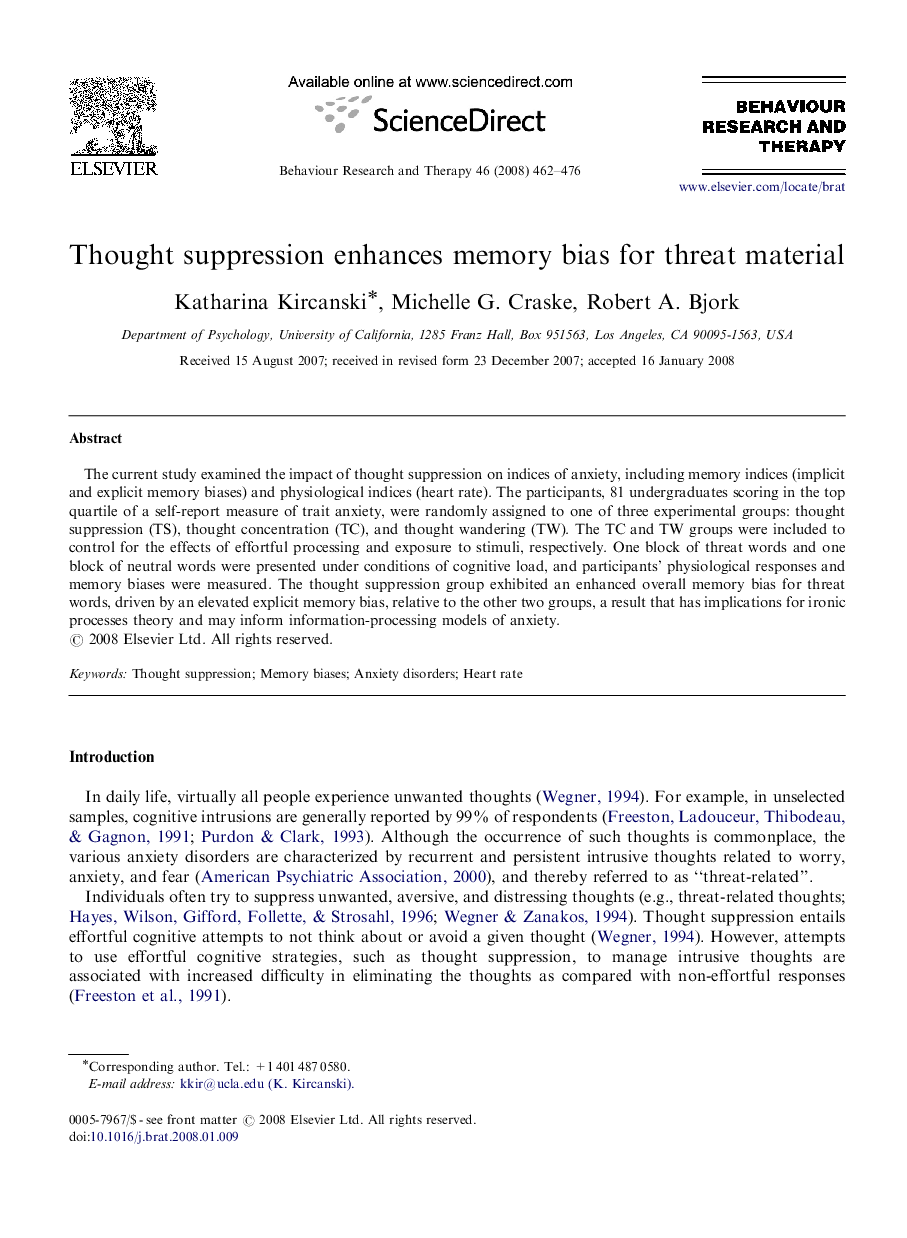| Article ID | Journal | Published Year | Pages | File Type |
|---|---|---|---|---|
| 902267 | Behaviour Research and Therapy | 2008 | 15 Pages |
The current study examined the impact of thought suppression on indices of anxiety, including memory indices (implicit and explicit memory biases) and physiological indices (heart rate). The participants, 81 undergraduates scoring in the top quartile of a self-report measure of trait anxiety, were randomly assigned to one of three experimental groups: thought suppression (TS), thought concentration (TC), and thought wandering (TW). The TC and TW groups were included to control for the effects of effortful processing and exposure to stimuli, respectively. One block of threat words and one block of neutral words were presented under conditions of cognitive load, and participants’ physiological responses and memory biases were measured. The thought suppression group exhibited an enhanced overall memory bias for threat words, driven by an elevated explicit memory bias, relative to the other two groups, a result that has implications for ironic processes theory and may inform information-processing models of anxiety.
